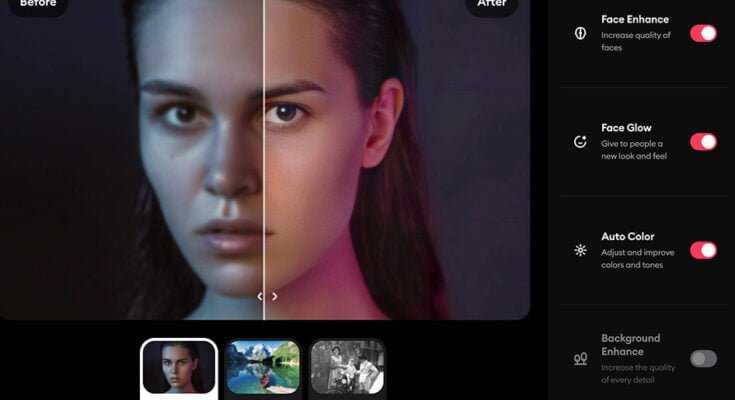Introduction In today’s digital age, picture editing has become an essential skill for individuals and professionals alike. Whether you’re an aspiring photographer, a social media enthusiast, or a business owner looking to enhance your online presence, knowing how to black Picture editing can make a significant difference in the quality and impact of your visuals. In this comprehensive guide, we’ll delve into the intricacies of picture editing, focusing on techniques, tools, and best practices to help you elevate your editing skills to the next level.
Understanding Picture Editing
Picture editing encompasses a wide range of techniques aimed at enhancing, retouching, and manipulating images to achieve desired visual outcomes. From basic adjustments like cropping and color correction to more advanced techniques such as compositing and special effects, picture editing offers endless possibilities for creative expression and storytelling. In the realm of picture editing, mastering the art of black Picture editing holds particular significance. Black Picture editing involves the manipulation of brightness, contrast, and exposure levels to create striking, high-impact images with rich tonal depth and dramatic flair. Whether you’re aiming for timeless elegance, contemporary chic, or bold avant-garde aesthetics, black Picture editing techniques can help you achieve your artistic vision with finesse.
Exploring Essential Tools and Software
To embark on your journey into the world of black Picture editing, you’ll need access to the right tools and software. Fortunately, there is no shortage of options available, catering to a diverse range of preferences, budgets, and skill levels. From industry-standard software like Adobe Photoshop and Lightroom to user-friendly mobile apps like Snapseed and VSCO, there’s something for everyone regardless of their expertise or experience level.
Harnessing the Power of Contrast and Lighting
At the heart of black Picture editing lies the interplay between contrast and lighting. Contrast refers to the difference in brightness between the lightest and darkest parts of an image, while lighting dictates the overall mood, atmosphere, and visual impact. By mastering the manipulation of contrast and lighting, you can transform ordinary photos into extraordinary works of art, imbuing them with depth, dimension, and emotional resonance.
Embracing Creative Expression
While technical proficiency is essential in picture editing, true mastery lies in the realm of creative expression. Don’t be afraid to experiment, push boundaries, and think outside the box. Whether you’re exploring unconventional editing techniques, experimenting with artistic filters, or incorporating digital overlays and textures, embracing your creativity is key to unlocking your full potential as a picture editor.
Advanced Techniques and Tips
Now that you have a solid understanding of the fundamentals, let’s delve into some advanced techniques and tips to take your black Picture editing skills to the next level:
- Dodging and Burning: Use dodging to selectively lighten areas of your image and burning to darken them, creating depth and dimension.
- Selective Color Editing: Experiment with selective color editing to accentuate specific hues or create dramatic monochromatic effects.
- Texture Overlay: Incorporate texture overlays to add tactile richness and visual interest to your photos, transforming them into multi-dimensional works of art.
- Composite Editing: Combine multiple images or elements to create seamless composite artworks, blending reality with imagination in captivating ways.
- HDR Imaging: Explore HDR imaging techniques to capture a wider dynamic range and preserve intricate details in both highlights and shadows.
FAQs (Frequently Asked Questions)
How can I achieve the perfect black effect in my photos? Achieving the perfect black effect requires careful manipulation of contrast, exposure, and tonal balance. Experiment with different editing techniques and pay close attention to detail to achieve optimal results. What are some common mistakes to avoid in black Picture editing? Common mistakes to avoid include over-editing, excessive use of filters, and neglecting to preserve the integrity of the original image. Remember to strike a balance between enhancement and naturalness for the most effective results. Which software is best for black Picture editing? While Adobe Photoshop and Lightroom are industry favorites for professional editing, there are also plenty of user-friendly mobile apps available for beginners, such as Snapseed, VSCO, and Adobe Lightroom Mobile. How can I learn black Picture editing effectively? To learn black Picture editing effectively, consider taking online courses, watching tutorials, practicing regularly, and seeking feedback from fellow photographers and editors. Hands-on experience and experimentation are key to mastering the craft. What role does lighting play in black Picture editing? Lighting plays a crucial role in black Picture editing as it determines the overall mood, atmosphere, and visual impact of the image. Pay attention to the direction, intensity, and quality of light when capturing and editing photos. Are there any ethical considerations in black Picture editing? Ethical considerations in black Picture editing include respecting copyright laws, obtaining proper consent for image manipulation, and maintaining transparency and honesty in representing reality. Always strive to uphold ethical standards and integrity in your editing practices.
Conclusion
In conclusion, mastering the art of black Picture editing requires a combination of technical skill, creativity, and dedication. By understanding the principles of contrast, lighting, and composition, experimenting with advanced techniques, and staying true to your artistic vision, you can elevate your editing skills to new heights. Whether you’re a novice exploring the world of picture editing or a seasoned professional seeking to refine your craft, remember that the journey towards mastery is as rewarding as the destination itself.



